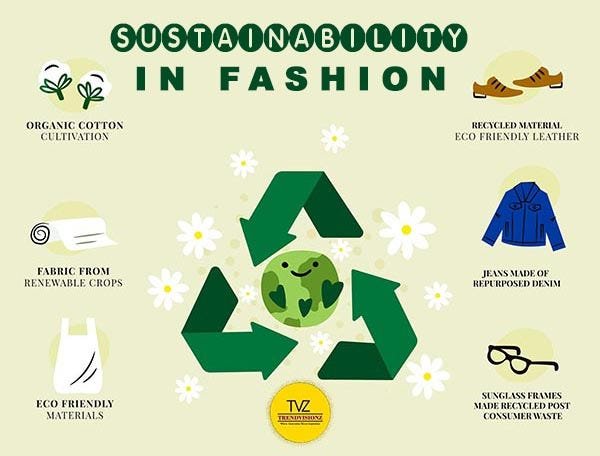Summary
The Environmental and Social Impact of Sustainable Fashion Sustainable fashion has emerged as a transformative trend, driven by increasing consumer awareness of environmental and social issues. This article delves into the multifaceted aspects of sustainable fashion, examining its environmental and social impacts, and how ethical clothing practices are reshaping the industry. It explores innovative approaches to minimize environmental harm, such as organic farming and eco-friendly production techniques. Additionally, it discusses the importance of fair labor practices and worker rights in promoting social sustainability within the fashion industry. The article highlights the role of consumer awareness and behavior in driving demand for ethical clothing, and the challenges and opportunities that lie ahead. Ultimately, the rise of sustainable fashion represents a shift towards a more conscious and responsible approach to clothing consumption, with the potential to create positive impacts on both people and the planet
The Environmental and Social Impact of Sustainable Fashion
In recent years, there has been a noticeable shift in consumer preferences towards sustainable and ethical fashion. This trend reflects a growing awareness of the environmental and social impacts associated with conventional clothing production. From fast fashion to eco-friendly alternatives, the fashion industry is undergoing a significant transformation. This article aims to delve into the multifaceted aspects of sustainable fashion, examining its environmental implications, social dimensions, and the emerging trends shaping the industry.
Environmental Impact:
The environmental footprint of the fashion industry is substantial, with issues ranging from water pollution and waste generation to carbon emissions and deforestation. Conventional textile production relies heavily on resource-intensive processes and often involves the use of toxic chemicals. Sustainable fashion seeks to mitigate these impacts through various means, including the use of organic and recycled materials, eco-friendly manufacturing practices, and innovative technologies such as waterless dyeing and zero-waste design. By adopting more sustainable approaches, brands can reduce their ecological footprint and contribute to the preservation of natural resources and ecosystems.
Social Impact:
Beyond environmental concerns, the fashion industry also grapples with social issues such as worker exploitation, labor rights violations, and inequality in supply chains. Ethical clothing practices aim to address these challenges by promoting fair wages, safe working conditions, and respect for workers’ rights. Initiatives such as fair trade certification and social compliance audits help ensure transparency and accountability throughout the supply chain. Moreover, sustainable fashion brands often prioritize ethical sourcing and production methods, fostering partnerships with artisans and communities to support local economies and preserve cultural heritage.
Consumer Behavior and Awareness:
The rise of sustainable fashion is closely intertwined with changing consumer attitudes and behaviors. Increasingly, consumers are seeking out eco-friendly and ethically made clothing options, driven by concerns about environmental sustainability, social justice, and corporate responsibility. This shift in consumer preferences has prompted many fashion brands to integrate sustainability into their business models, offering transparency about their sourcing practices and environmental initiatives. Moreover, social media and digital platforms play a crucial role in raising awareness about sustainable fashion, empowering consumers to make informed choices and hold brands accountable for their actions.
Challenges and Opportunities:
Despite the progress made in promoting sustainable fashion, significant challenges remain. Balancing economic viability with environmental and social considerations can be complex, particularly for small and medium-sized enterprises. Additionally, achieving widespread adoption of sustainable practices across the entire fashion industry requires collaboration and collective action from stakeholders at all levels. However, the growing demand for sustainable fashion presents numerous opportunities for innovation and collaboration. From eco-friendly materials and circular business models to inclusive and equitable supply chains, there is immense potential to reshape the fashion industry for the better.
The rise of sustainable fashion represents a paradigm shift in the way we think about clothing production and consumption. By prioritizing environmental stewardship, social responsibility, and ethical principles, the fashion industry can become a force for positive change. As consumers increasingly demand transparency and sustainability from brands, there is a growing imperative for businesses to embrace innovation and embrace a more holistic approach to fashion. Ultimately, the journey towards a more sustainable and ethical fashion industry requires collective effort and commitment from all stakeholders, but the rewards – both for people and the planet – are immeasurable.
Last Updated on Wednesday, April 24, 2024 7:51 am by Admin






